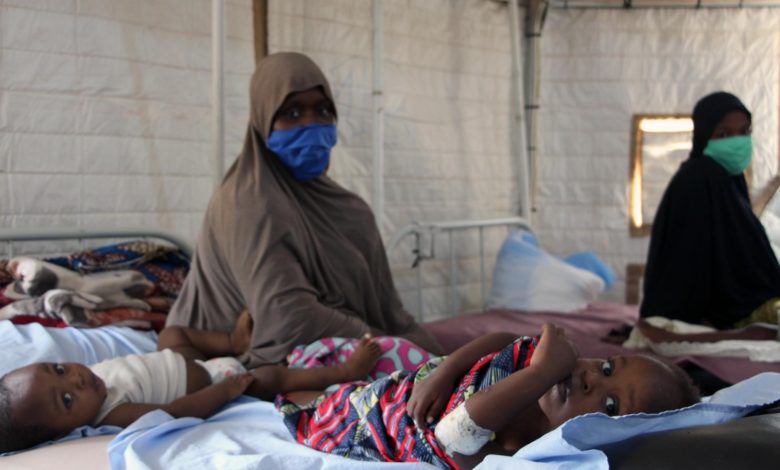Malaria: MSF Treats 3, 287 Children In Borno

About 3, 287 children have been treated for malaria in one of the hospitals belonging to Medecins Sans Frontieres (MSF) in Borno state, northeast Nigeria.
Malaria, a disease caused by a plasmodium parasite, is at its peak in Borno, North-East Nigeria.
Malaria accounts for 50 percent of total consultations in health facilities in the region.
In Borno and Yobe states, the World Health Organisation (WHO) estimates that more than half of the morbidity and mortality are due to malaria, a proportion that is higher than all other causes combined including measles, cholera, and hepatitis E.
The disease kills almost 100,000 people each year in Nigeria.
Nearly one out of every three of these deaths occurs in an emergency setting within populations displaced by violence, struggling to get the food, water, shelter, and security they need to live.
Results from the Nigeria Humanitarian Response Strategy (NHRS 2019-2021) indicate that 7.1million people are in dire need of healthcare and 6.2 million are targeted for immediate attention.
Despite predictable spikes in malaria, more than 270,000 cases of uncomplicated malaria were recorded across Borno state in 2019.
To combat the disease, MSF’s hospital in Gwange district, Maiduguri treats children under 15 years.
In June 2020, the humanitarian organization admitted 14 patients but the number rose to 846 in July, 846 in August, and 1, 898 in September.
MSF teams are working on raising awareness of the local population, to bring their children as soon as possible to the hospital if they show any of the symptoms.
So far in 2020, the organization has distributed 5,938 mosquito nets to all the patients who are admitted to the hospital in Borno state.
Aside from malaria, in Gwange, MSF has treated children for malnutrition, measles, and other diseases.
The organization offers medical care free of charge and has continued to deliver emergency medical aid to people affected by armed conflict, epidemics, natural and man-made disasters or exclusion from healthcare in over 60 countries.
Support Our Journalism
There are millions of ordinary people affected by conflict in Africa whose stories are missing in the mainstream media. HumAngle is determined to tell those challenging and under-reported stories, hoping that the people impacted by these conflicts will find the safety and security they deserve.
To ensure that we continue to provide public service coverage, we have a small favour to ask you. We want you to be part of our journalistic endeavour by contributing a token to us.
Your donation will further promote a robust, free, and independent media.
Donate HereStay Closer To The Stories That Matter




